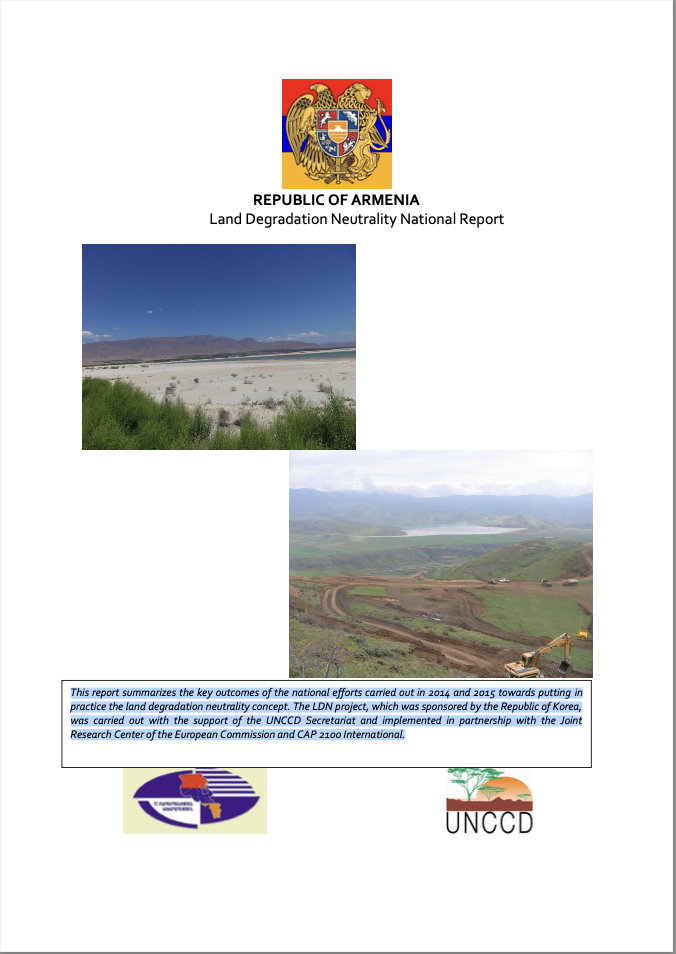Location
The United Nations Convention to Combat Desertification in Those Countries Experiencing Serious Drought and/or Desertification, Particularly in Africa (UNCCD) is a Convention to combat desertification and mitigate the effects of drought through national action programs that incorporate long-term strategies supported by international cooperation and partnership arrangements.
Members:
Resources
Displaying 296 - 300 of 585Republic of Armenia: Land Degradation Neutrality National Report
This report summarizes the key outcomes of the national efforts carried out in 2014 and 2015 towards putting in practice the land degradation neutrality concept. The LDN project, which was sponsored by the Republic of Korea, was carried out with the support of the UNCCD Secretariat and implemented in partnership with the Joint Research Center of the European Commission and CAP 2100 International.
Status of the World’s Soil Resources (SWSR) – Main Report
The SWSR is a reference document on the status of global soil resources that provides regional assessments of soil change. The information is based on peer-reviewed scientific literature, complemented with expert knowledge and project outputs. It provides a description and a ranking of ten major soil threats that endanger ecosystem functions, goods and services globally and in each region separately. Additionally, it describes direct and indirect pressures on soils and ways and means to combat s oil degradation.
West Africa: Promoting sustainable land management in migrationprone areas through innovative financing mechanisms
In West Africa, many countries are adversely affected by the effects of desertification, land degradation and drought(DLDD), with climate change also increasingly making an impact on local livelihoods. The most visible consequences are a loss of soil fertility and a reduction in agricultural productivity, which can lead to food and social crises and, consequently, to increased poverty. Furthermore, farmers are often forced to exploit the land to its maximum capacity in order to obtain good yields and to avoid the risk of famine.
Climate change and land degradation: Bridging knowledge and stakeholders
Human activities are the principal drivers of the processes of land degradation, desertification and climate change. Though highly complex and difficult to predict, interactions between climate change and land degradation are likely to affect a range of different ecosystem functions and the services they deliver, with consequent impacts on food production, livelihoods and human well-being. Society must therefore mitigate or reverse these stresses through innovative approaches.
Land Degradation Neutrality Fund : An Innovative Investment Fund Project
Two billion hectares of productive land are degraded worldwide. This is an area larger than South America or twice the size of China, and 500 million hectares of this is abandoned agricultural land. We continue to degrade another 12 million hectares of productive land every year. We need to break this destructive cycle because the benefits of preventing land degradation and reversing it are far greater than the gains from degrading new land year after year.



